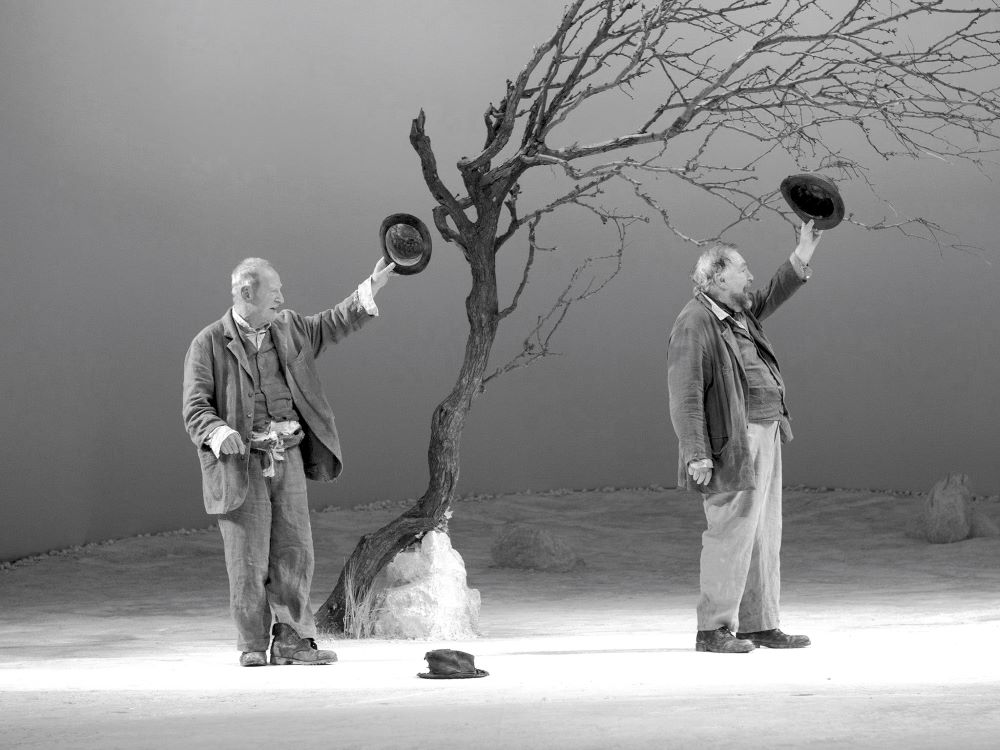
The Theatre of the Absurd, with Samuel Beckett as one of its foremost figures, revolutionized the theatrical world by challenging traditional norms and delving into the absurdity
SHOUKAT LOHAR
The Theatre of the Absurd, a groundbreaking theatrical movement that emerged in the mid-20th century, challenged traditional dramatic conventions and explored the existential absurdity of human existence. At the forefront of this movement stood Irish playwright Samuel Beckett, whose innovative works continue to captivate audiences and provoke profound contemplation. In this article, we will delve into the Theatre of the Absurd and examine the remarkable contributions of Samuel Beckett to this genre.
The Theatre of the Absurd emerged in the aftermath of World War II, a time of immense disillusionment and uncertainty. It sought to reflect the disarray and absurdity of human existence in a world that had witnessed unprecedented destruction and loss. The movement rejected conventional narrative structures, logical coherence, and traditional character development, opting instead for fragmented, illogical, and repetitive scenarios that mirrored the chaos and meaninglessness of life.
One of the most influential figures in this movement was Samuel Beckett. Born in Dublin in 1906, Beckett developed a unique artistic vision that challenged the boundaries of traditional drama. His works, characterized by minimalist sets, spare dialogue, and enigmatic and often bleak narratives, epitomize the essence of the Theatre of the Absurd.

Beckett’s most renowned play, “Waiting for Godot,” encapsulates the essence of the Theatre of the Absurd. The plot revolves around two tramps, Vladimir and Estragon, who wait endlessly for the arrival of a character named Godot, who never appears. Through their aimless conversations, absurd encounters with other characters, and repetitive actions, Beckett explores themes of existential angst, the futility of human existence, and the human condition itself. The play’s circular structure and lack of resolution underscore its absurdist nature, leaving audiences with a profound sense of uncertainty and reflection.
In addition to “Waiting for Godot,” Beckett’s other notable works, such as “Endgame” and “Krapp’s Last Tape,” further exemplify the Theatre of the Absurd. “Endgame” portrays a post-apocalyptic world where four characters, Hamm, Clov, Nagg, and Nell, exist in a state of resignation and hopelessness. The play explores themes of confinement, power dynamics, and the cyclical nature of existence. “Krapp’s Last Tape” delves into the themes of memory, regret, and the passage of time through the monologue of an aging man who listens to recordings of his younger self.
What sets Beckett apart as a master of the Theatre of the Absurd is his ability to combine philosophical depth with dark humor. His plays, although seemingly bleak and nihilistic, often feature absurd and comedic elements that provide a counterpoint to the existential weight of the narratives. This blending of tragedy and comedy heightens the impact of his works, challenging audiences to confront the absurdity of life with a mixture of laughter and introspection.
Samuel Beckett’s contributions to the Theatre of the Absurd have had a lasting impact on the theatrical landscape. His innovative techniques and thematic explorations continue to inspire playwrights and directors worldwide. By embracing the inherent meaninglessness and irrationality of human existence, Beckett’s works provoke audiences to question their own lives, values, and beliefs.
The Theatre of the Absurd, with Samuel Beckett as one of its foremost figures, revolutionized the theatrical world by challenging traditional norms and delving into the absurdity.
_________________
 Shoukat Lohar is Assistant professor in English at Mehran University of Engineering and Technology Jamshoro. He can be reached at Shoukat.ali@faculty.muet.edu.pk
Shoukat Lohar is Assistant professor in English at Mehran University of Engineering and Technology Jamshoro. He can be reached at Shoukat.ali@faculty.muet.edu.pk